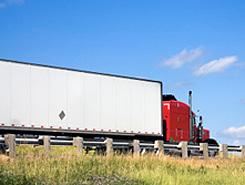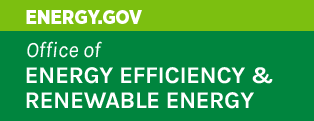Wisconsin Clean Cities
The Wisconsin Clean Cities works with vehicle fleets, fuel providers, community leaders, and other stakeholders to identify community-driven choices that save energy and promote the use of alternative fuels and advanced vehicle technologies in transportation.

Milwaukee, WI 53203
Fred
Schnook
262-362-1228
fschnook@wicleancities.org
General Stats
- Designated: June 29, 1994
- Population: 5,914,872 (based on 2024 Census estimate)
- Area: 56,103 sq. mi.
- Local/Regional Service Area: Entire state of Wisconsin including tribal lands
Alternative Fueling Stations
Including public and private stations

- Biodiesel (B20 and above): 2
- Electric (charging outlets): 2,296
- Ethanol (E85): 238
- Hydrogen: 0
- Natural Gas: 43
- Propane: 69
Energy Use Impact*
Annual Energy ImpactEmissions Reduced*
Annual Emissions Reduced
Fred Schnook
Prior to assuming the Executive Director role in 2024, Fred Schnook served as Mayor of the City of Ashland, Wisconsin, where he established the city as one of the first Eco-Municipalities in the nation. These efforts helped Mayor Schnook to increase federal and state funding by over 350% from the previous administration. Mr. Schnook served as a consultant with Foth, Inc., providing energy efficiency planning practices and projects to private sector enterprises and municipalities across the mid-west. Fred also served as the City and Village Administrator in Kewaunee and Mukwonago, Wisconsin. Fred served as Wisconsin’s representative to the Great Lakes Commission and was recognized by The Lake Superior Waterkeepers for outstanding service in his efforts at Great Lakes protection and restoration. Fred Schnook has a master’s degree in public administration from the University of Wisconsin, Oshkosh.
Learn about just some of the projects from Wisconsin Clean Cities. Visit the Wisconsin Clean Cities website for more projects and information.
Projects and Case Studies- Penske Truck Leasing Alternative Fuel Vehicle (AFV) Demonstration and Enhanced Driver Experience
- Lake Michigan Corridor Alternative Fuel Implementation Initiative
- U.S. Fuels Across America’s Highways - Michigan to Montana (M2M)
- Forwarding Wisconsin's Fuel Choice
- Midwest EVOLVE (Midwest Electric Vehicle Opportunities: Learning, Events, Experience
- NGV U.P.T.I.M.E. Analysis: Updated Performance Tracking Integrating Maintenance Expenses
- Zero Emission Freight Future
- Developing Replicable, Innovative Variants for Engagement for EVs in the USA (DRIVE Electric USA)
- Helping Rural Counties Transition to Cleaner Fuels and Vehicles
- Heavy-Duty Electric Vehicle Demonstrations for Freight and Mobility Solutions
- Expanding Regional Electric Vehicle Charging Access with Tribal Nations Based on Community Priorities
- Leadership in CNG Propels Paper Transport Inc.
